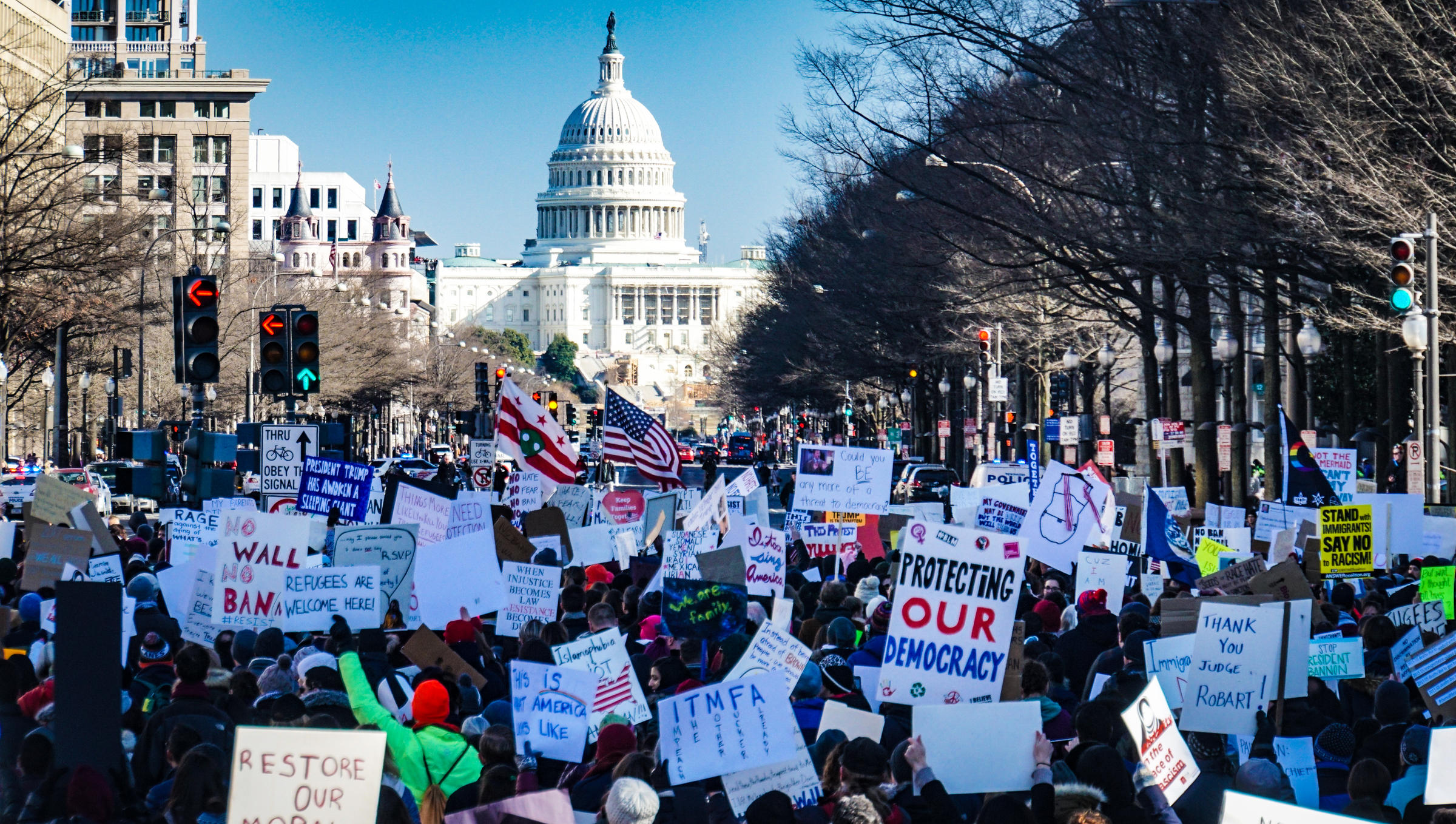“After turning out in record numbers in 2020, young Americans are sounding the alarm.”
By Jessica Corbett. Published 12-1-2021 by Common Dreams

Photp: Ted Eytan/CC
In the lead-up to U.S. President Joe Biden’s “Summit for Democracy,” polling results released Wednesday show that a majority of young adults nationwide are concerned about the state of American democracy.
The Institute of Politics (IOP) at Harvard Kennedy School surveyed adults aged 18 to 29 across the political spectrum from October 26 to November 8—amid ongoing GOP attacks on U.S. democracy in the form of gerrymandering and blocking various federal voting rights legislation.
Among all respondents, 39% described the United States as “a democracy in trouble” while 13% called it “a failed democracy.” That compared with 27% who believe the nation is “a somewhat functioning democracy,” 13% who said they “don’t know,” and only 7% who think it is “a healthy democracy.”
As Common Dreams reported last month, another recent poll found that violent, anti-democratic views are thriving on the American right, and the International Institute for Democracy and Electoral Assistance even dubbed the United States a “backsliding” democracy.
Over half (57%) of all the young Americans surveyed by IOP said it is “very important” that the United States is a democracy, and another 21% said it is “somewhat important.”
1: A majority (52%) of young Americans 18-29 believe that our democracy is either in trouble or failing.
Only 7% view the US as a healthy democracy, with Republicans being more likely than Democrats to believe that America is a democracy in trouble (47/37%) or failed (23/8%). pic.twitter.com/AyVlyIimtO
— Institute of Politics (@HarvardIOP) December 1, 2021
The poll also shed light on young adults’ views on American exceptionalism, the chances of a second U.S. civil war, the impacts of Covid-19, their mental health, the climate emergency and government action to address it, and how Biden is performing as president.
Asked to select three answers from a provided list, a majority (58%) of those polled said they would define a successful presidency by “strengthening the economy.” The other top selections were “bringing the country together” (45%), “improving healthcare” (42%), “addressing climate change” (33%), and “reducing economic inequality” (32%).
“Right now, young Americans are confronting worries on many fronts. Concerns about our collective future—with regard to democracy, climate change, and mental health—also feel very personal,” said Jing-Jing Shen, student chair of the Harvard Public Opinion Project.
8: Strengthening the economy, uniting the country, and improving health care are viewed as keys to a successful presidency in the eyes of young Americans.
Full poll results: https://t.co/SzAJ4EeDJl pic.twitter.com/Kcs7nz34jR
— Institute of Politics (@HarvardIOP) December 1, 2021
IOP director Mark Gearan noted that “in the 2020 election, young Americans proved with their record-shattering turnout that they are a formidable voting bloc and eager to make their voices heard.”
“Our political leaders on both sides of the aisle would benefit tremendously from listening to the concerns that our students and young voters have raised about the challenges facing our democracy and their genuine desire for our parties to find common ground on solutions,” he added.
IOP polling director John Della Volpe also referenced last year’s election, which saw former President Donald Trump and his allies cling to the “Big Lie” that Biden was not the true victor—claims that ultimately incited a right-wing mob to storm the U.S. Capitol on January 6.
“After turning out in record numbers in 2020, young Americans are sounding the alarm. When they look at the America they will soon inherit, they see a democracy and climate in peril—and Washington as more interested in confrontation than compromise,” Della Volpe said. “Despite this, they seem as determined as ever to fight for the change they seek.”
Part of that fight includes pressuring Congress to pass legislation protecting and enhancing voting rights. However, various bills have stalled this year in the evenly split Senate.
Senate Republicans’ actions have bolstered calls for Democrats to reform or abolish the filibuster so they can send to Biden’s desk the John R. Lewis Voting Rights Advancement Act as well as the Freedom to Vote Act, a “compromise” bill inspired by the bolder For the People Act.
Progressives are warning congressional Democrats and the White House that failing to take action on voting rights—and other key priorities, many of which are set to be partially addressed by the watered-down Build Back Better Act the Senate still needs to pass—could have electoral consequences in 2022, especially given GOP gerrymandering and voter suppression efforts.
“We started this wave of protests, because we feared that President Biden misunderstood history,” Ben Jealous, president of People for the American Way, said in a Politico report published Wednesday. “He said you just can’t stop voters from voting. It’s just not true.”
“We feel like he has moved on that,” Jealous added. “The question is does he have the courage to actually stand up for the voters who had his back? Does he have the courage to stand up for our democracy, even as he convenes other nations for his democracy summit?”
Democrats in D.C. say protecting voting rights is of upmost importance, but the end of the year is fast approaching and no bill has reached Biden’s desk. That infuriates voting rights activists and organizers, who say Biden needs to do more. My latest https://t.co/fBZNaer0B7
— Zach Montellaro (@ZachMontellaro) December 1, 202
Biden’s two-day virtual summit is scheduled to start on December 9, followed by an in-person meeting that will be held roughly a year later.
When announcing the upcoming summit earlier this year, the White House said it “will galvanize commitments and initiatives across three principal themes: defending against authoritarianism, fighting corruption, and promoting respect for human rights.”

